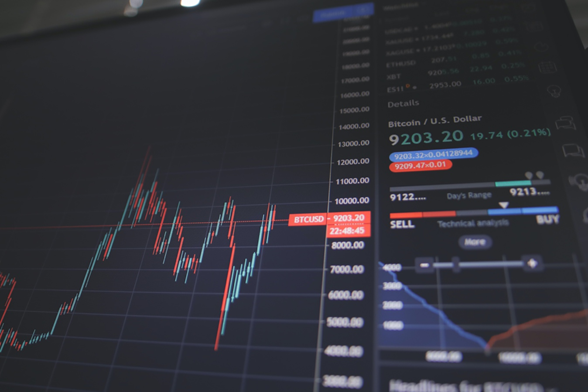Trading and investing have recently become two trending topics as pandemic lockdowns prompted people to look for ways to entertain themselves while confined within their homes. The stock market appears to have presented itself as an option at some point down the road.
Millions of amateur participants have now entered this complex landscape with the hopes of learning and possibly making money out of this activity, and if you are among the group of people who is struggling to understand how to make the most out of your participation in the market, the first thing you should know is that there are two approaches you could take. One is to become a trader, and the other is to act as an investor.
The following article compares traders vs. investors to help you understand these roles and pick a side.
How does trading work?
Trading is an activity that involves buying and selling financial instruments frequently. These operations are mostly performed via a low-cost brokerage firm to reduce the fees involved. Traders commonly identify potential candidates to operate with by using complex mathematical tools and charting techniques following a discipline known as technical analysis.
In essence, a trader’s goal is to buy an instrument at a certain price to then sell it at a higher price on short notice. On the other hand, long/short traders may also borrow a security to sell it at a given price and then buy it back at a lower price for a profit.
With technical analysis, a trader aims to identify patterns and setups that could signal how the price of a financial instrument will behave in the near future. For example, if the price is poised to go up, they buy (long position) or if it has high odds of going down, they borrow the security and sell it (short position).
There are multiple types of traders, and they are grouped depending on the maximum period that they will usually hold a security.
A scalper is a high-frequency trader (HFT) who will perform possibly hundreds of operations in a matter of hours by using complex systems and algorithms to identify signals across multiple markets and securities.
Meanwhile, a day trader is an individual who opens and closes multiple positions within a single session, meaning that by the end of the day, his trading portfolio will commonly be empty as all transactions should have been closed before the trading session ends. Other types of traders include swing, fundamental, technical, and momentum traders.
How does investing work?

Source: Unsplash
In the words of the father of the modern investing discipline, Benjamin Graham, investing is an operation that, upon completing a thorough assessment of the transaction, offers the principal’s safety and a suitable rate of return.
For an investor, an instrument is more than just a piece of paper that is regularly traded via an exchange. Instead, the investor sees the instrument as a stake in the underlying business that issued it and, as a result, the business must be analyzed to assess if the security meets the criteria to be considered an investment.
Investors can specialize in a certain asset class (stocks, bonds, real estate) and they will usually have a thorough understanding of accounting and finance along with developing valuable insights on the qualitative aspects of the business.
The goal of an investor is to identify securities that are trading below their intrinsic or fair value. This value is estimated by using different metrics such as valuation multiples, discounted cash flow (DCF) models, or peer comparison.
Things to consider when picking which path to take
Now that you know the differences between an investor and a trader, there are a few variables that you should consider when picking which side you will be on:
- Your risk tolerance: Trading is considered riskier than investing due to the inherent volatility that security prices tend to experience in the short term. Therefore, if you would like to become a trader, your risk tolerance must be high.
- Your investment horizon: Traders don’t usually hold a security for more than a couple of weeks. Instead, investors may sit on a certain instrument for months, years, or even decades until they fully realize their potential.
- Your expertise: A successful trader needs to come up with a system that works most of the time and must have the discipline to stick with it. Meanwhile, an investor must develop other skills, including financial analysis, business valuation, and market analysis to possibly identify the best opportunities in the market.
Would you rather be an investor or trader? With these definitions and considering the variables outlined above, you should now be prepared to pick a side when participating in the stock market.
Author Bio
Daan Smit is a Dutch-born writer who lives in Asia. He develops feature articles, global news & technology pieces. Dan’s work explores issues related to business psychology, data science, and cyber security.



